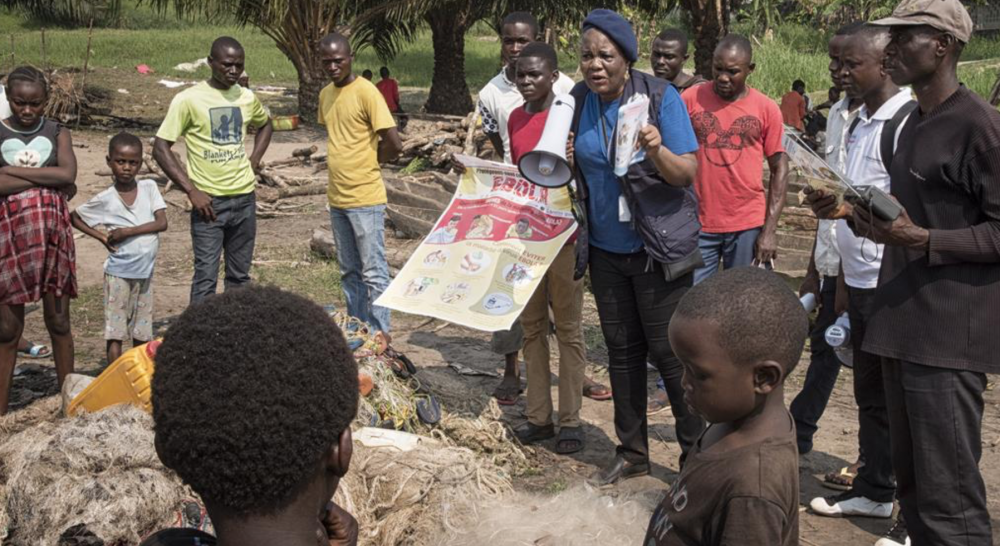
The second longest outbreak of Ebola in history poses little immediate threat to the United States, officials told a U.S. Senate panel on Wednesday, but that could quickly change if the outbreak is not contained.
During a hearing titled, “Confronting Ebola: Addressing a 21st Century Global Health Crisis,” witnesses discussed the continuing outbreak before the Senate Foreign Relations Subcommittee on Africa and Global Health Policy. The increasing number of deaths in the Democratic Republic of Congo (DRC) are concerning, the panel said, but largely contained. The hearing came one week after the World Health Organization (WHO) declared the Ebola outbreak a Public Health Emergency of International Concern.
As of July 22, nearly 2,600 cases of Ebola have been diagnosed and nearly 1,750 people have died of the disease. The outbreak in the DRC started in August 2018. WHO cited the spread of the disease to Goma, the capital of the eastern province of North Kivu in the DRC. The city of 2 million people sits on the border of the DRC and Rwanda, and near to the borders of Uganda and Burundi, raising concerns about the spread of the virus to other countries, WHO said.
Marcia Bernicat, principal deputy assistant secretary of the Bureau of Oceans and International Environmental and Scientific Affairs with the U.S. State Department, testified that the outbreak is the second largest in human history and that while authorities have been working diligently to contain the virus for a year, the results have been complicated by the political and cultural climate of the DRC.
“Ebola cases continue to rise, Ebola patients continue to die and local communities and responders have not been taking all the necessary steps to end the outbreak, and in some cases, as we’ve noted, communities are actively, even violently, resisting Ebola response efforts. The risk of Ebola spreading to the remainder of the DRC and surrounding countries remains high, as demonstrated by the three cases reported in Uganda in June and the case in Goma last week.”
Complicating the containment of the disease, the panel said, was a general mistrust by those in the DRC of anyone in a uniform, as well as a lack of governmental control in the area which has given rise to the spread of violent gangs.
“Part of it is historically (for the residents of the region) anytime you see anyone in a uniform they’re there to kill you, rob you or rape you,” said Tibor Nagy, assistant secretary of the Bureau of African Affairs in the U.S. State Department. “It’s so much more intense because of the horrendous amount of abuse, especially because of the lack of concern by the DRC, their misery and the lack of development in the area.”
Because of this, the United States has recently adopted a whole-of-government approach that looks at the issue as more than just a health intervention, said U.S. Sen. Lindsey Graham (R-SC), chair of the subcommittee.
But U.S. Sen. Bob Menendez (D-NJ), ranking member of the Senate Foreign Relations Committee, warned that the United States wasn’t completely in the clear when it came to the spread of the virus if it’s not contained quickly.
“A greater outbreak produces a greater risk,” Menendez said. “We’re all just one flight away from infection.”
Bringing an end to the Ebola outbreak is a top priority for the U.S. government, officials say, not only to reduce suffering but because effective efforts to contain the outbreak can prevent it from reaching the broader region and U.S. borders.
“There is no question that our interventions thus far have saved lives and prevented a much larger outbreak,” said retired Navy Rear Adm. Tim Zeimer, senior deputy assistant administrator for the Bureau for Democracy, Conflict, and Humanitarian Assistance with the United States Agency for International Development (USAID). The more than $98 million USAID has provided for the Ebola response in the DRC to date has been supporting life-saving assistance in numerous capacities.
Also as part of the response, the Centers for Disease Control and Prevention (CDC) is working with the USAID Disaster Assistance Response Team and the American Embassy in Kinshasa to help the Congolese and assist in the international response. The United States is providing technical assistance and expertise in disease tracking, case investigation, contact tracing, case management, infection prevention and control, safe burials, community engagement and social mobilization, risk communication and health education, laboratory testing, border health, data management, vaccine campaigns and logistics, the CDC said in a written statement on July 17.
To rapidly identify cases of Ebola, CDC is also working with the U.S. Embassy in DRC to preposition CDC staff in Goma to rapidly respond to hotspots where the security situation is permissible, the CDC said.
The global response to the disease was ramping up as well. Zeimer said that although the amount the United States contributes to combat the disease is well below what is needed, the World Bank had just pledged $300 million to contain the disease, while other countries, including the United States, are increasing the amount of funds it will be contributing to assist the efforts of WHO.
“Our current plan has brought us closer to containing the disease,” Zeimer said. “The jury is still out on whether or not this combined effort will deliver the progress we need, but we are much improved over where we were six months ago.”
Graham said the outbreak was an example of globalism, at its best.
“This is a case study, exhibit A as to why you can’t withdrawal from the world,” he said. “To those who think problems over there are not problems over here, you’re going to learn pretty quickly that when it comes to diseases like this, when you don’t get ahead of it you’re going to regret it.”




